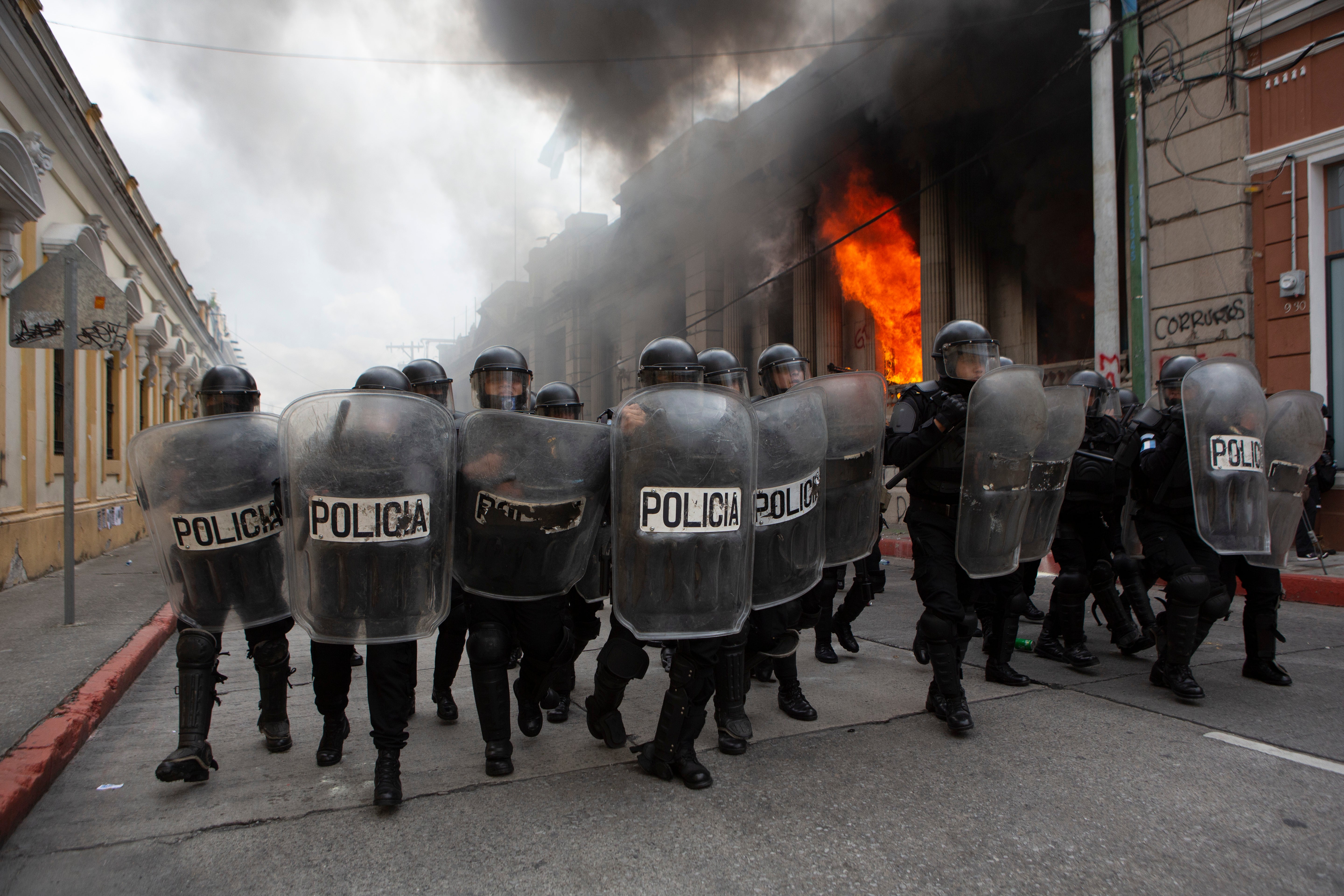Guatemalan Congress backs down on budget after protests
Guatemala's Congress has backed down on a 2021 federal budget that drew angry protests, including the burning of part of the Congress building

Your support helps us to tell the story
From reproductive rights to climate change to Big Tech, The Independent is on the ground when the story is developing. Whether it's investigating the financials of Elon Musk's pro-Trump PAC or producing our latest documentary, 'The A Word', which shines a light on the American women fighting for reproductive rights, we know how important it is to parse out the facts from the messaging.
At such a critical moment in US history, we need reporters on the ground. Your donation allows us to keep sending journalists to speak to both sides of the story.
The Independent is trusted by Americans across the entire political spectrum. And unlike many other quality news outlets, we choose not to lock Americans out of our reporting and analysis with paywalls. We believe quality journalism should be available to everyone, paid for by those who can afford it.
Your support makes all the difference.Guatemala’s Congress backed down on Monday on a federal budget that drew angry protests, including the burning of part of the Congress building over the weekend.
The new budget would have slashed social spending and was approved last week while the country was distracted by Hurricane Iota.
Congressional leader Allan Rodríguez said the already approved budget had been suspended, leaving it unclear what the next step might be. Rodriguez said that some parties whose legislators originally voted for the bill later voiced objections.
Roberto Alejos, a former leader of Congress, said the procedure to simply revoke an already approved bill appeared irregular; the normal course would have been to send it to President Alejandro Giammattei and wait for him to veto it.
“Supposing that the legislators did it in good faith, what they are doing is to reassure the public that there is no budget, to reduce tension with public and to avoid handing the president this hot potato,” Alejos said.
Protesters broke into the Congress building and set one office afire on Saturday, and tossed rocks at police. Flames poured out of the building’s neoclassical facade.
The protests were part of growing demonstrations against Giammattei and the legislature for approving a budget that cut educational and health spending. Lawmakers approved $65,000 to pay for meals for themselves, but cut funding for coronavirus patients and human rights agencies.
Police used tear gas and nightsticks to push demonstrators back, attacking not only about 1,000 demonstrators in front of Congress but also a much larger protest in front of the country’s National Palace. Some protesters also damaged bus stations. About a dozen police officers and 15 protesters were injured.
The Inter-American Human Rights Commission issued a statement condemning "the excessive use of force by authorities against demonstrators” but also asked for an investigation into “the acts of vandalism against Congress, after which State agents indiscriminately suppressed the protest.”
The Organization of American States sought more of a middle ground.
“Regarding yesterday’s demonstrations, we reiterate that there is a right to protest, which must be absolutely guaranteed, but there is no right to vandalism,” the OAS said in a statement.
Giammattei’s interior minister, Gendri Reyes, complained that “a group of people attacked with terrorist acts, throwing firebombs to destroy Congress buildings. They tossed rocks and used weapons against security forces.”
The civic group Alliance for Reforms called for the resignation of Reyes, the country’s top domestic security official, and the director of the National Police, saying that “they were the ones who gave the order to repress that public.”